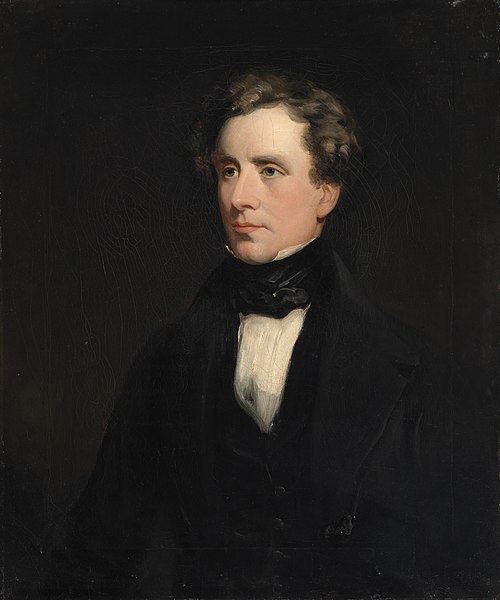John Wilkes was an English radical journalist and politician, as well as a magistrate, essayist and soldier. He was first elected a Member of Parliament in 1757. In the Middlesex election dispute, he fought for the right of his voters – rather than the House of Commons – to determine their representatives. In 1768, angry protests of his supporters were suppressed in the Massacre of St George's Fields. In 1771, he was instrumental in obliging the government to concede the right of printers to publish verbatim accounts of parliamentary debates. In 1776, he introduced the first bill for parliamentary reform in the British Parliament.
John Wilkes by Richard Houston (1769)
Lord Bute, Prime Minister between 1762 and 1763, and a major target for Wilkes' paper The North Briton. It angered Wilkes that Bute had displaced Pitt the Elder, and he attacked the terms of the Treaty of Paris (1763).
"John Wilkes Esq; before the Court of King's Bench", engraving from The Gentleman's Magazine for May 1768
Wilkes' popularity with radicals declined after he led militia to protect the Bank of England during the Gordon Riots in 1780. Wilkes became a supporter of William Pitt the Younger who became Prime Minister in 1783, and severed most of his former radical connections.
Radicalism was a political movement representing the leftward flank of liberalism during the late 18th and early 19th centuries and a precursor to social liberalism, social democracy, civil libertarianism, and modern progressivism. This ideology is commonly referred to as "radicalism" but is sometimes referred to as radical liberalism, or classical radicalism, to distinguish it from radical politics. Its earliest beginnings are to be found during the English Civil War with the Levellers and later the Radical Whigs.
Irish Classical Radical Thomas Francis Meagher
Jeremy Bentham
Mary Wollstonecraft
Flyer for the Chartist demonstration on Kennington Common, 1848








